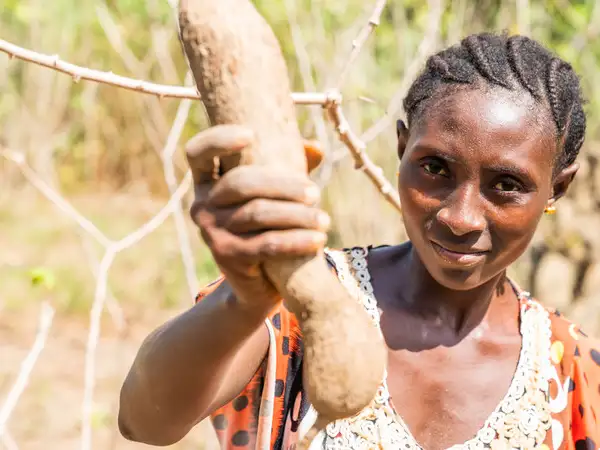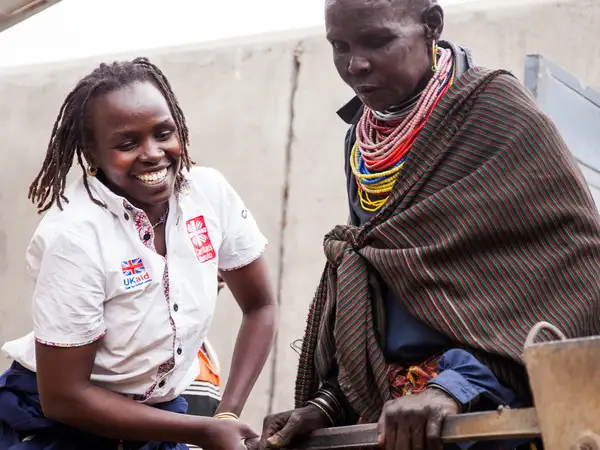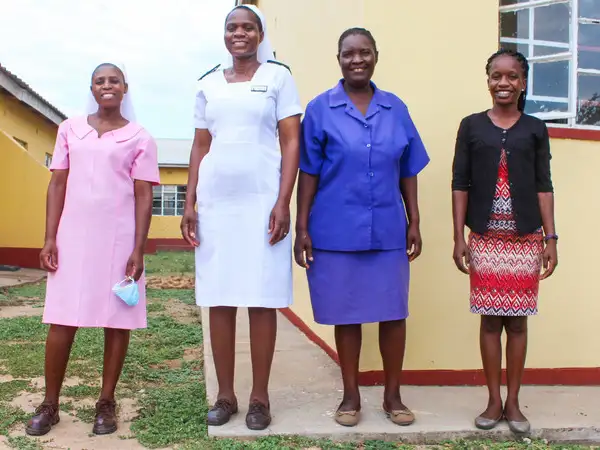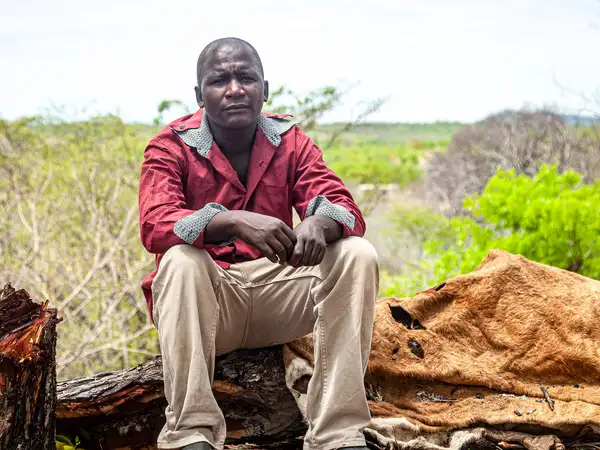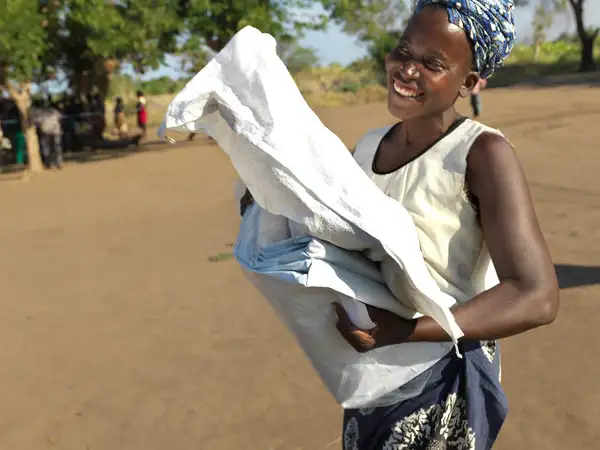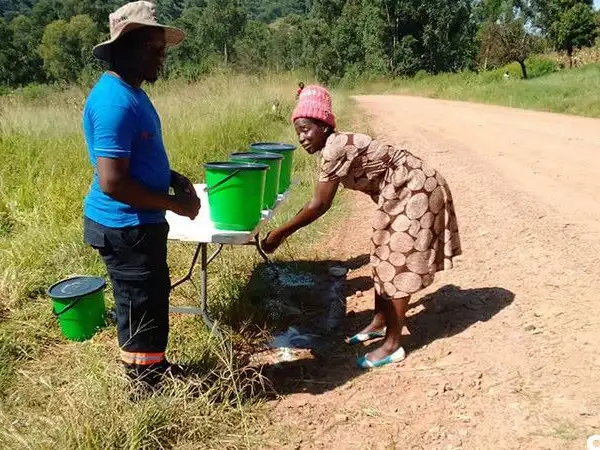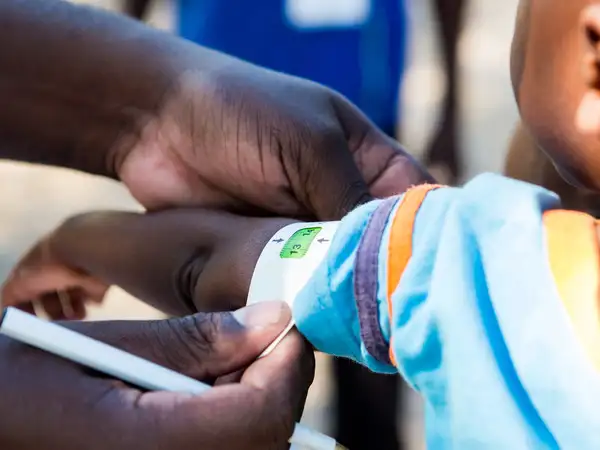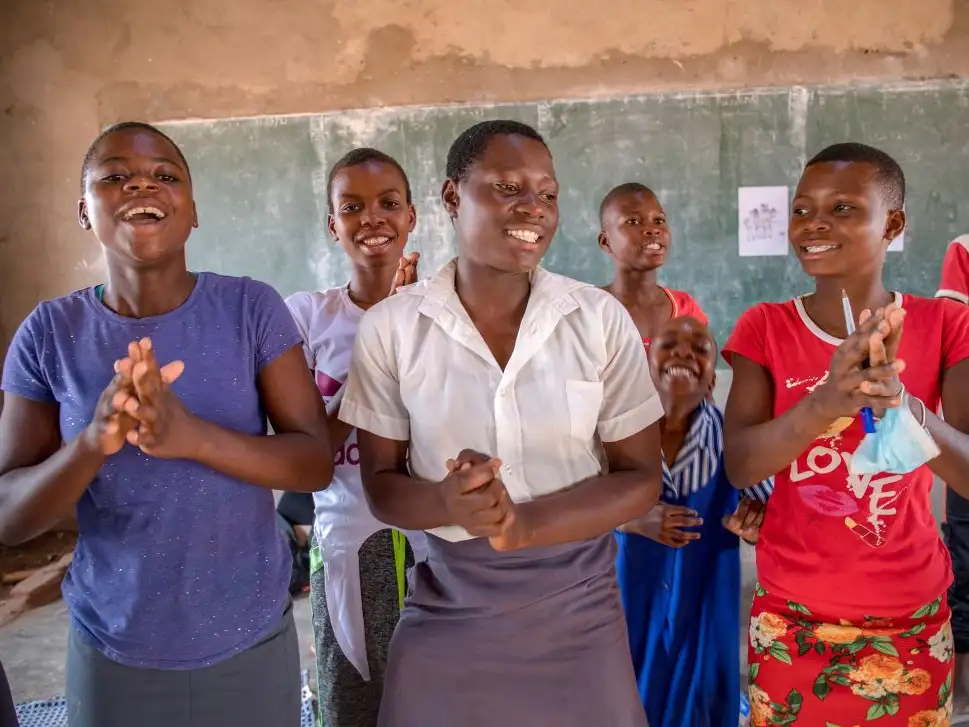
Women and girls in Zimbabwe bear the brunt of the backlash to a turbulent socio-economic situation and an increasingly unstable climate, with one of the highest rates of sexual and gender-based violence in the world. Tackling gender inequality, therefore, underlines all our programme work across the country.
Nearly 70 per cent of Zimbabwe’s population works in the agricultural sector – the majority of these workers are women. The El Niño-induced drought of 2024 – the worst drought in 40 years – depleted water resources, destroyed pastureland and caused widespread crop failure. Now, over 40 per cent of homes are struggling to access nutritious food.
A better world needs all of us. That’s why CAFOD has been working in Zimbabwe since the 1970s to combat disease, food insecurity and the effects of climate change, as well as tackling gender inequality throughout its work.
Our impact in 2024
Last year, we reached 119,728 people in Zimbabwe.
We worked closely with 121 key traditional leaders to raise awareness of practices which negatively affect women and girls, like child marriage. We also supported 128 women farmers to improve their agricultural practices, to help them earn an independent income.
We created the conditions for 1,448 children to stay in school by improving access to water, so they didn’t have to walk for hours a day and miss out on vital learning opportunities.
We worked with community leaders to successfully curb the spread of cholera among 11,725 people in the worst-affected rural district.
Why CAFOD works in Zimbabwe
Years of economic turmoil and unpredictable weather caused by climate change means life remains precarious for many in Zimbabwe.
An estimated 6 million people are expected to be food insecure in Zimbabwe in 2025. The El Niño-induced drought has limited access to food, as well as diversity of food, thereby affecting the overall quality of people’s diets.
Poor rainfall has led to crop failure in most parts of the country, with 60 per cent of crops completely lost. This is making the economic situation so much worse for rural communities who are reliant on rain-fed agriculture.
The drought will also expose 2.6 million people to severe water shortages. A lack of access to water encourages poor hygiene practices and increases the risk of infectious and waterborne disease outbreaks like cholera.
Drought is also heightening the risk of gender-based violence and abuse. During drought events, there is an increased likelihood of child-marriage and sexual exploitation of women and girls.
Young people are also less likely to attend school as they are forced to travel long distances to collect water (during the 2015/2016 El Niño even, more than 45,067 children dropped out of school) and their school fees become unaffordable.
How we’re responding
Together, we can build a better world. Donations from you can make sure that no one in Zimbabwe has their life limited by injustice or poverty – that everyone has the support they need to flourish.
Our partners in Zimbabwe have been working on projects that fight for gender justice, improve access to water and respond to the cholera outbreak.
Current projects
Women in Zimbabwe are frequently sidelined from decision-making processes and are at increased risk of violence. That’s why our local experts have reached out to 121 traditional leaders to raise awareness of gender inequality and put a stop to child abuse and child marriages.
We’re also supporting 128 women farmers, advocating for gender-inclusive and environmentally friendly agricultural policies, like Seed Sovereignty (the right of farmers to save, exchange and sell their own seeds).
Climate change is limiting access to water for communities in Zimbabwe. Because of this, children are having to walk for miles to find water that’s safe to drink. The hours they spend travelling for water means they are missing out on time at school.
CAFOD’s local experts are combatting that loss of learning time by improving access to clean water for drinking and washing. So far, we’ve helped 1,448 children stay in school and reduced the incidences of diarrheal diseases which disrupt learning.
Zimbabwe experienced a deadly cholera outbreak from February 2023 to August 2024. We worked with local experts and community leaders to successfully curb the spread of cholera among 11,725 people in the worst-affected rural district.
News from Zimbabwe
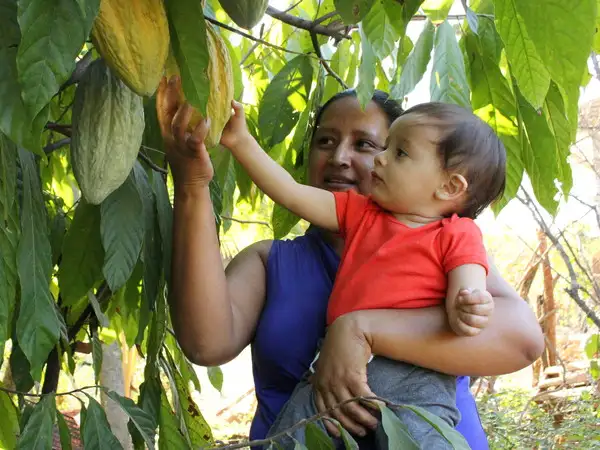
What we do
CAFOD is the official aid agency for the Catholic Church in England and Wales.
With your help, we reach out to people living in hard-to-reach places, in war zones and those who are discriminated against.


